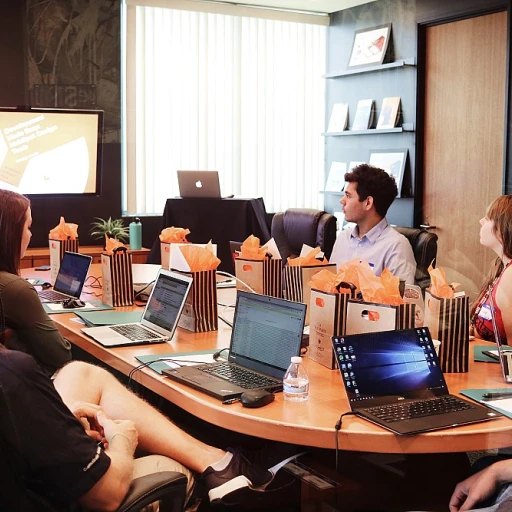
Why employee experience consulting matters for modern organizations
Employee experience consulting helps an organization understand how people actually live work every day. By mapping the full employee experience from recruitment to exit, consultants reveal key friction points that silently damage engagement and employee retention. This human centered view allows leaders to align business goals with what employees feel and need.
In many industries, engaged employees are now a strategic asset rather than a soft benefit. Employee experience consulting services translate qualitative insights and quantitative engagement scores into clear priorities for change management and experience design. When organizational culture, management practices, and experience strategy are aligned, companies can build a culture where employees feel respected, supported, and highly engaged.
Traditional organizational consulting often focused on structure, processes, and cost, while ignoring daily moments that matter. Modern experience consulting instead examines how company culture, leadership behaviors, and work tools shape the lived experience of employees. This shift helps business leaders move from one off initiatives to integrated experience solutions that support engagement and employee proposition over time.
For human resources teams, employee experience is now the lens that connects recruitment, learning, performance, and retention. Employee engagement and employee experience are not identical, but they reinforce each other when experience design is intentional. By using case studies, data, and best practices from multiple industries, consultants help organizations build coherent journeys where moments matter and engaged employees can thrive.
From data to actionable insights in employee experience consulting
Effective employee experience consulting starts with robust data that respects people and context. Consultants combine surveys, engagement scores, interviews, and digital traces of work to generate insights about organizational culture and employee engagement. The goal is not more data, but clearer signals about where change will truly boost employee outcomes.
Human centered analysis looks beyond averages to understand different segments of employees and teams. For example, highly engaged employees may still struggle with specific moments that matter, such as onboarding, internal mobility, or performance reviews. By comparing these patterns across departments and industries, consulting services can highlight which experience solutions will create the greatest impact for the organization.
Communication is a critical part of this analytical phase, especially when artificial intelligence tools are involved. HR leaders must explain how AI supports employee experience, protects privacy, and strengthens employee proposition rather than replacing human judgment. Resources on how AI is changing HR communication can help management teams frame these conversations with clarity and transparency.
Once insights are clear, consultants work with business leaders and HR management to prioritize initiatives. They translate complex findings about employee experience and organizational culture into a small number of key experience strategy themes. These themes then guide change management, engagement initiatives, and experience design so that employees feel the impact of decisions in their daily work.
Designing human centered journeys where moments matter
Experience design in employee experience consulting focuses on the specific touchpoints that shape how employees feel. Consultants map journeys such as hiring, onboarding, promotion, parental leave, and exit to identify where moments matter most for engagement and employee retention. Each journey is then redesigned so that people experience clarity, fairness, and support at every step.
Human centered experience solutions often combine policy changes, management training, digital tools, and culture initiatives. For example, a company might redesign onboarding so that new employees meet key colleagues earlier, receive clearer feedback, and access self service platforms that simplify administrative work. Guidance on enhancing employee experience with crew self service platforms illustrates how technology can support both efficiency and engagement.
Employee experience consulting also helps organizations align experience design with their employee proposition and company culture. If an organization promises flexibility, autonomy, or learning, those values must appear in daily work practices and management behaviors. When engaged employees see that promises match reality, engagement scores rise and organizational culture becomes more resilient during change.
Artificial intelligence can support experience strategy by personalizing learning paths, predicting attrition risks, and surfacing insights about how employees feel. However, consultants emphasize that AI should augment human centered design rather than replace it. The most effective experience consulting projects use AI to inform decisions while keeping people, fairness, and trust at the core of every change.
Embedding employee experience into organizational culture and change
For employee experience consulting to deliver lasting value, its principles must be embedded into organizational culture. This means that leaders, managers, and HR professionals treat employee experience as a continuous discipline rather than a one time project. When experience strategy is integrated into planning, budgeting, and performance management, engaged employees become a sustained competitive advantage.
Change management is a critical bridge between experience insights and daily reality. Consultants help organizations design change programs that explain why new practices matter, how they support employees, and what leaders will do differently. When people understand the purpose of change and see leaders modeling new behaviors, they are more likely to stay engaged and support transformation.
Employee experience consulting also encourages organizations to review policies and processes through a human centered lens. For example, performance management, hybrid work rules, and internal mobility programs can be redesigned to support employee engagement and employee retention. Over time, these changes shape a company culture where employees feel heard, valued, and able to contribute their best work.
Case studies from different industries show that highly engaged cultures do not happen by accident. They are built through consistent management practices, clear communication, and experience solutions that address real pain points. By aligning organizational consulting, change management, and experience design, companies can build environments where moments matter and engagement remains strong even during uncertainty.
How artificial intelligence elevates employee experience consulting
Artificial intelligence is transforming how consultants analyze and improve employee experience across organizations. AI tools can process large volumes of feedback, engagement scores, and behavioral data to identify patterns that traditional analysis might miss. This allows consulting services to generate more precise insights about what truly drives engagement and employee retention.
For example, AI driven workplace mapping can reveal how people collaborate, which teams are isolated, and where work bottlenecks reduce productivity. These insights help leaders redesign spaces, workflows, and digital tools to support engaged employees and healthier company culture. A detailed overview of enhancing employee experience with AI driven workplace mapping shows how data can guide such decisions.
AI can also personalize experience solutions by recommending learning content, mentoring matches, or internal opportunities that align with individual skills and aspirations. When employees feel that the organization understands their goals and supports their growth, engagement and loyalty increase. This personalization strengthens the employee proposition and reinforces a human centered approach to management and organizational culture.
However, responsible use of AI in employee experience consulting requires strong governance, transparency, and ethical standards. HR leaders must ensure that algorithms do not reinforce bias, that employees understand how their data is used, and that human oversight remains central. When these safeguards are in place, AI becomes a powerful ally for experience consulting, helping organizations build workplaces where people can thrive.
Practical steps to build a human centered employee experience strategy
Organizations that want to benefit from employee experience consulting can start with a clear roadmap. First, leaders should define why employee experience matters for their business, whether for innovation, customer satisfaction, or employee retention. This shared purpose becomes the key reference point for all experience strategy decisions and change management efforts.
Next, HR and management teams can conduct a baseline assessment of employee engagement, culture, and critical journeys. This includes reviewing engagement scores, running listening sessions, and analyzing how employees feel at different stages of their work life cycle. Consultants then help translate these findings into a small number of experience design priorities that address the most important moments that matter.
Implementation requires cross functional collaboration between HR, IT, operations, and business leaders. Together, they design experience solutions that combine policy changes, leadership behaviors, and technology enhancements to support engaged employees. Throughout this process, case studies and best practices from similar industries provide reassurance that the organization is moving in a proven direction.
Finally, organizations should treat employee experience as an ongoing discipline with regular measurement and refinement. By tracking engagement scores, retention metrics, and qualitative feedback, leaders can see whether employees feel the intended benefits of new initiatives. Over time, this continuous improvement mindset helps build a resilient company culture where people, performance, and experience consulting remain closely aligned.
Key statistics on artificial intelligence and employee experience
- Include here quantitative statistics from topic_real_verified_statistics about AI adoption in HR and its impact on employee engagement and retention.
- Highlight data points that show how AI driven insights improve experience design and organizational culture outcomes.
- Mention statistics that connect AI enabled consulting services with higher engagement scores and reduced turnover.
- Emphasize numbers that demonstrate the business value of highly engaged employees across industries.
Frequently asked questions about employee experience consulting and AI
How does employee experience consulting differ from traditional HR consulting ?
Employee experience consulting focuses on the holistic journey of employees, from hiring to exit, rather than isolated HR processes. It emphasizes how people feel at key moments, how culture and management shape engagement, and how experience design can support both performance and well being. Traditional HR consulting often centers on policies and structures, while experience consulting prioritizes human centered outcomes and daily work realities.
Can artificial intelligence replace human judgment in employee experience decisions ?
Artificial intelligence can provide powerful insights, predictions, and pattern recognition, but it cannot replace human judgment in sensitive people decisions. HR leaders and managers must interpret AI outputs within the context of organizational culture, ethics, and individual circumstances. The most effective approach uses AI to augment human expertise, ensuring that experience solutions remain fair, transparent, and aligned with company values.
What role do managers play in sustaining employee engagement after a consulting project ?
Managers translate experience strategy into daily behaviors that employees feel directly. They shape team culture, communication, feedback, and workload, which are all critical drivers of employee engagement and retention. Without consistent management practices that support engaged employees, even the best designed experience solutions will struggle to deliver lasting impact.
How can smaller organizations benefit from employee experience consulting ?
Smaller organizations can use employee experience consulting to clarify their employee proposition, strengthen company culture, and address specific pain points such as onboarding or internal communication. They may not need large scale programs, but targeted experience design can still boost employee engagement and retention. Consultants can adapt best practices and case studies to the scale and resources of smaller businesses while keeping the approach human centered.
How often should organizations review their employee experience strategy ?
Employee experience strategies should be reviewed regularly, typically at least once a year, and more frequently during periods of significant change. Shifts in business models, technology, or workforce expectations can quickly alter what employees need to stay engaged and productive. Continuous listening, combined with periodic strategy reviews, helps organizations keep experience consulting efforts aligned with evolving realities.













